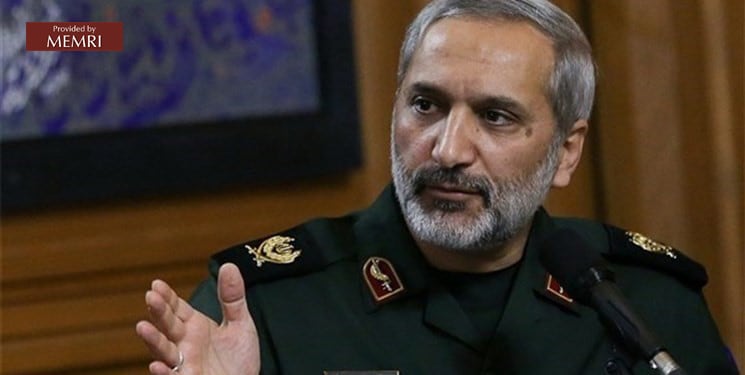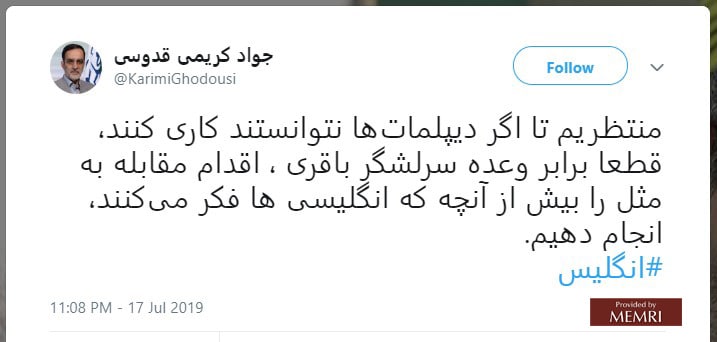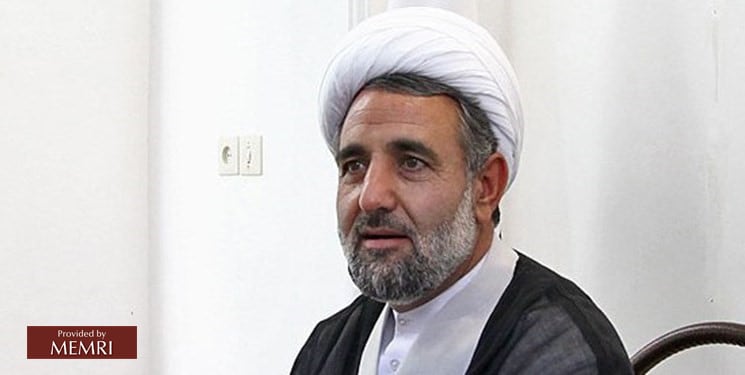In recent days, senior Iranian officials have made threats against Britain for the latter's July 4, 2019 seizure of an Iranian oil tanker in Gibraltar, as well as threats to Europe's security for what they say is its failure to meet its obligations under the JCPOA nuclear deal. On July 16, 2019, Iranian Supreme Leader Ali Khamenei announced that the Europeans have 11 such obligations to Iran but have "not met a single one of them."[1]
Iranian officials have already threatened to flood Europe with refugees. On December 8, 2018, President Hassan Rohani said at the second conference of parliamentary speakers from Russia, China, India, Pakistan, Afghanistan, and Iran, held in Tehran, warned that if the European countries endorse the U.S. sanctions on Iran and weaken it, they will be flooded with terror, refugees, and drugs (see MEMRI Special Dispatch No. 7824, Iranian President Rohani To The West: If You Undermine The Deployment Of Our Forces In The Middle East And Weaken Iran With Sanctions – You Will Drown In Terror, Bombs, Refugees And Drugs, December 31, 2018).
Threats Against Britain
Following Britain's seizure of the Iranian tanker in Gibraltar, Khamenei said, on July 16, that an Iranian response would be forthcoming: "The British snatched our ship, like pirates. [Although] their evil is clear to all, they are attempting to give this [piracy] a legal guise. The believing elements in the Islamic Republic [of Iran] will not leave this operation unanswered, and they will respond to it at the appropriate time and place."[2]
The following day, July 17, Iranian Majlis National Security and Foreign Policy committee chairman Mojtaba Zolnour said: "If the English detain our tanker on false pretenses in the Strait of Gibraltar, they must know that we have a significant marine presence, particularly in the Indian Ocean, the Gulf of Oman, and the Persian Gulf. The same people who permit themselves to carry out this act of piracy as slaves of America will definitely carry out other crimes.
"British tankers and merchant vessels must ultimately pass through the Strait of Hormuz and the Persian Gulf, and under no circumstances will this operation by the English go unanswered.
"As of today, there are many English vessels sailing around the Gulf of Oman and the Indian Ocean that do not dare enter the Persian Gulf. We are men of peace; we provide security for the region. If not for the Islamic Republic, the oil region of the Persian Gulf would be chaotic – yet the despicable English are not supposed to take advantage of Iran's decency. The English will absolutely receive a response to their piracy, and will regret their crime."[3]
On July 17, 2019, Gen. Mohammad Reza Yazdi, commander of the IRGC's Mohammad Rasoul Allah Division, said: "The seizure of the oil tanker has no legal basis, but the very people who pretend to be the legal source know that their operation was piracy. We are not leaving the British seizure of the oil tanker unanswered. We can say that we have many means of responding – it is only that for now we are trying to persuade the British to accept that they have transgressed and to rectify it.
"We hope that America's, and particularly Trump's, idiotic and thoughtless actions will not entangle the British and the Europeans... because it is better for the Europeans not to not obey the Americans. The British must know that our nation is strong, and that if it becomes necessary, they will see its capability in the appropriate place."[4]

Gen. Mohammad Reza Yazdi (Source: Farsnews.com, July 17, 2019)
The same day, Majlis member Ahmad Salek called for retaliatory operations against tankers headed for Europe via the Strait of Hormuz.[5]
On July 18, Majlis National Security and Foreign Policy Committee member Javad Karimi Ghodousi tweeted: "We absolutely expect to carry out a reprisal operation that will be beyond what the English can imagine, as Chief of Staff Bagheri said. This is in the event that the [Iranian] diplomats can do nothing [to get the vessel released]."
SUPPORT OUR WORK


Twitter.com/KarimiGhodousi/status/1151735534294843392, July 17, 2019.
Threats Against European Security
Majlis National Security and Foreign Policy committee chairman Mojtaba Zolnour and former Foreign Ministry spokesman and Iranian ambassador to Paris Hamid Reza Assefi spoke on Iranian state radio's July 11, 2019 edition of its "Conversation of the Day" program. During the broadcast, both warned that Europe's continued security is contingent upon its fulfilment of its obligations to Iran under the JCPOA. Zolnour went on to warn that Iran may announce an intention to enrich uranium to 60% for use in nuclear submarines – even though Iran has no nuclear-powered submarines. It should be noted that it takes considerably less time to enrich uranium already at 60% to the level needed to produce nuclear weapons.
The following are translated excerpts from their conversation:
Majlis National Security And Foreign Policy Committee Chairman Zolnour: Europe's Proximity To Iran "Makes Europeans More Vulnerable [Than The Americans] To Tension In The Region"
Mojtaba Zolnour said on the program: "If Europe doesn't keep its promises within the 60 day [Iranian ultimatum period] we are in now, Iran will vigorously take the third step [in cutting back on its obligations under the JCPOA]. This third stage may include installing a new [model of] centrifuge and increasing the number of operating centrifuges...
"America and Europe are playing 'good cop, bad cop.' There is no essential difference between America and Europe in their treatment of Iran. The difference is only in their methods. America is always striving for a coup in Iran, but since it has not succeeded in obtaining this, it is stepping up the pressure on Iran. In the entire issue of the nuclear agreement, the Europeans only want Iran to pay the price for it without benefiting from it...

Mojtaba Zolnour (Source: Fars, Iran, July 11, 2019)
"Submarines are considered important military and strategic equipment. They are used with a nuclear engine operating on nuclear batteries fueled by [nuclear] fuel enriched to 60%. Therefore, the second step [sic] can be to prepare the ground for this, in case we need to provide this nuclear fuel ourselves.
"Europe's activity under the JCPOA is like the vendor who has already received the customer's money but won't give him the merchandise. Europe is now asking Iran to restrain itself while it itself fulfils none of its obligations. After a year of this, we reached the conclusion that we must do things on our own and not waste time because of the Europeans. Europe-U.S. trade totals a thousand billion dollars [sic] [annually], while their trade with us is only $20 billion. In light of this, Europe does not want to risk... its national interests [i.e. trade with the U.S.]. The JCPOA is an important issue for the Europeans; nevertheless Europe wants to block Iran['s progress] by means of the JCPOA without paying any price.
"Europe is closer [geographically] to Iran than America, and this makes the Europeans more vulnerable [than the Americans] to tensions and firestorms in the region. Therefore, [the Europeans'] failure to uphold the JCPOA can have consequences in this area [i.e. can impact Europe's security]."[6]
Former Iranian Ambassador To Paris Assefi: "We Are Demanding Of The Europeans That They Meet Their Obligations If They Want Their Security Provided"
Former Foreign Ministry spokesman and Iranian ambassador to Paris Hamid Reza Assefi said on the program: "Europe joins America in its general strategies. This is because the European states are part of Western society and are influenced by the culture and policy of that region. Therefore, it is logical that the Europeans would not want to play their part with Iran as they should.
"We are demanding of the Europeans that they meet their obligations if they want their security provided. We expect the Europeans to oppose the American greed if they want the JCPOA to continue to exist based on [Iran's and Europe's] shared interests...
"French President Macron's envoy [Emmanuel] Bonne's [July 10] meeting with the top Iranian echelons must guarantee Iran's interests in the JCPOA. Therefore, recommending that Iran restrain itself in the [matter of the] JCPOA [and back down from cutting back on its commitments under the JCPOA] is pointless."[7]




